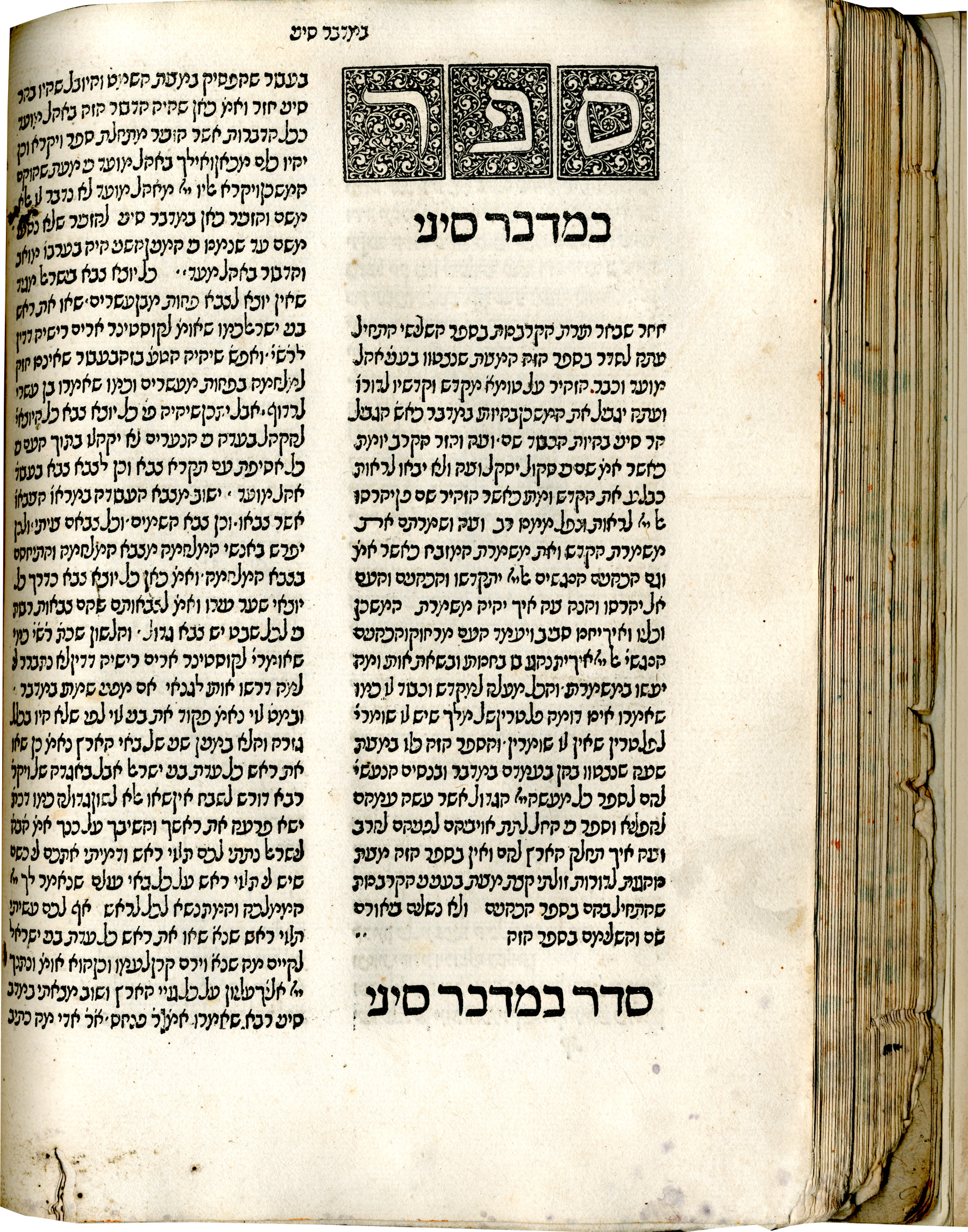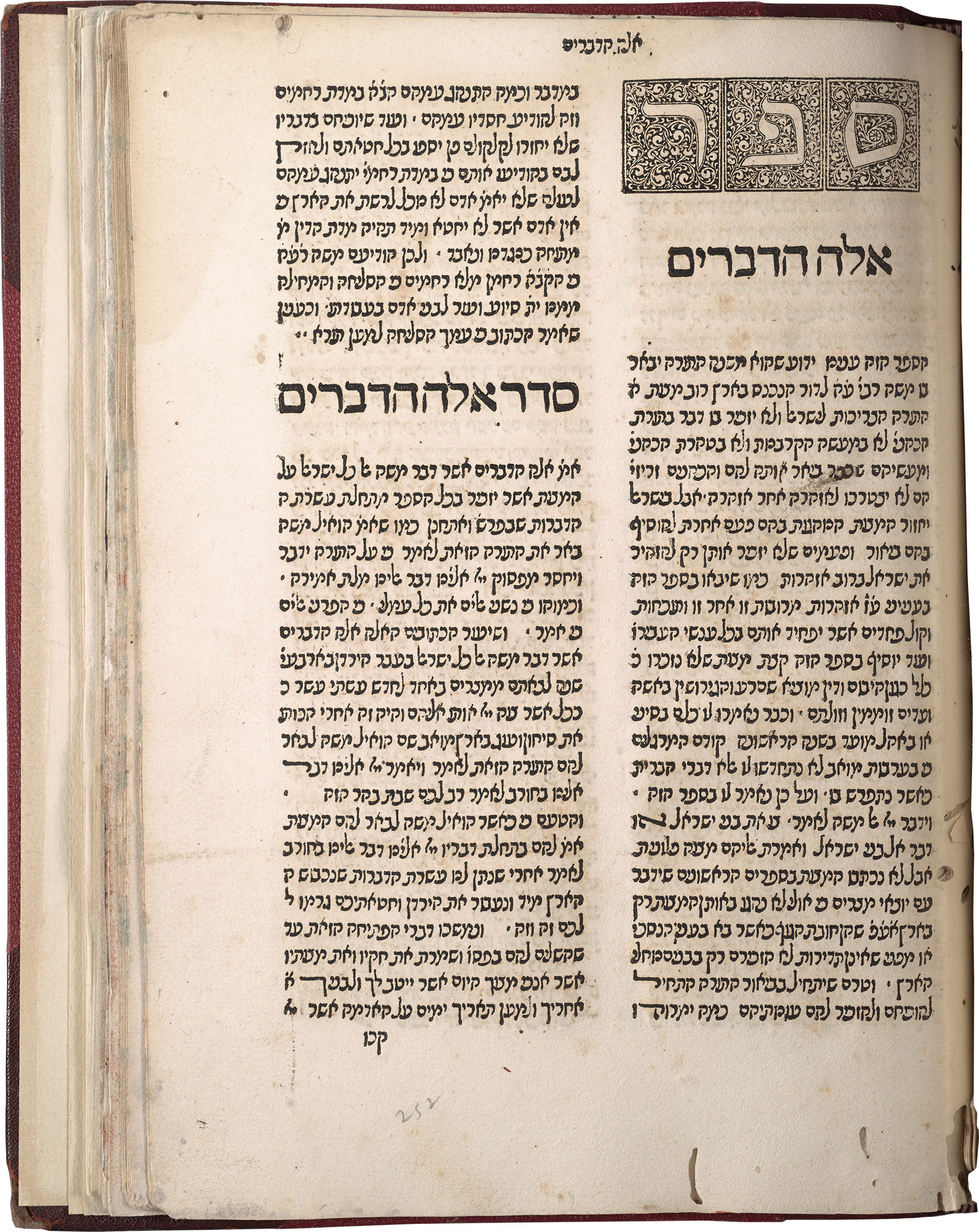Displayed here are two pages from the Pentateuch commentary of Moses Nahmanides (1194-1270), the great Catalan exegete, talmudist, and kabbalist. As reflected in this commentary, Nahmanides stood at an intellectual crossroads of multiple interpretive traditions that he inherited in partial and refracted ways. On the one hand, he was heir to the Geonic-Andalusian school, which migrated into Christian Spain as the Reconquista progressed. Although Nahmanides evidently did not read Arabic, he avidly absorbed a mediated version of Geonic and Andalusian learning in the Hebrew writings of Abraham Ibn Ezra and David Kimhi, as well as the recently composed Hebrew translations - by Judah and Samuel Ibn Tibbon and Judah Alharizi - of works by Saadia, Ibn Janah and Maimonides. At the same time, Nahmanides was influenced by the momentous innovations in talmudic learning in twelfth-century northern France, which was accompanied by a deep respect for Rashi and his Bible commentaries. On the other hand, Nahmanides largely ignores - or perhaps was unaware of - the refined peshat commentaries of Rashi's students, the great pashtanim Joseph Qara and Rashbam.
There is a distinctive theological strain in Nahmanides' Pentateuch commentary. He incorporates - but at times engaged in - a polemic with the philosophical interpretive mode of Moses Maimonides, as expressed in the latter's Guide of the Perplexed. As a counterbalance to Maimonides' rationalistic outlook, Nahmanides often presents a kabbalistic reading of the biblical text, finding within it deep mystical meanings. He avers, for example, that the entire Pentateuch can be read as a secret amalgam of divine names, in addition to its reading "according to the commandments" i.e., in its literal sense as the Law. It is the literal sense, or peshat, that leads Nahmanides to note structural and other literary features of the Pentateuch. The two pages displayed here are from his introductory remarks to Numbers and Deuteronomy, in which he endeavors to identify the distinctive themes of these two books of the Pentateuch - as he does for Genesis, Exodus and Leviticus - thereby providing a rationale for its five-part literary organization.
Although he his one among many Jewish authors over the centuries who have interpreted the Bible, Nahmanides' multi-dimensional Pentateuch commentary is considered among the most profound, and is avidly studied to this day.

